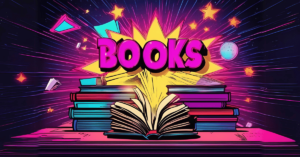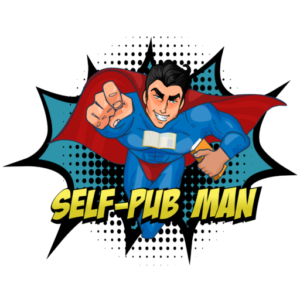Hey there, fellow authors! Are you tired of pouring your heart and soul into your book only to watch it languish in obscurity due to lackluster marketing? Well, what if I told you that the smartest investment you can make in your writing career is to harness the power of artificial intelligence (AI) for your book marketing?
That’s right. AI isn’t just for sci-fi novels anymore; it’s the real deal and changing the game for savvy authors like you. In this article, we’ll explore how AI-driven book marketing can help you cut through the noise, reach your ideal readers, and skyrocket your book sales without breaking the bank or losing your sanity. So, please grab a cup of coffee, and let’s explore the exciting world of AI-powered book promotion together!
Table of Contents
AI-Driven Book Marketing: The Smartest Investment for Authors
In the ever-evolving world of publishing, authors constantly search for innovative ways to promote their books and reach their target audience. Enter artificial intelligence (AI)—the game-changing technology revolutionizing the book industry and transforming how authors approach marketing. AI-driven book marketing is quickly becoming the smartest investment for authors looking to boost their visibility, engage with readers, and drive sales.

What is AI-Driven Book Marketing?
At its core, AI is developing computer systems that can perform tasks typically requiring human intelligence, such as learning, problem-solving, and decision-making. When applied to marketing, AI enables authors to automate and optimize various aspects of their promotional efforts, from audience targeting to content creation.
The benefits of AI-driven book marketing are manifold. By leveraging AI tools and strategies, authors can gain valuable insights into their target readers’ preferences and behaviors, allowing them to create more personalized and effective marketing campaigns. Additionally, AI can help authors save time and resources by automating repetitive tasks and providing data-driven recommendations for optimizing their promotional efforts.
AI-Powered Tools for Author Success
One of the most exciting applications of AI in book marketing is the use of chatbots. These intelligent virtual assistants can engage with readers 24/7, answering their questions, providing personalized book recommendations, and even facilitating purchases. By offering a seamless and interactive user experience, chatbots can help authors build stronger relationships with their audience and drive more sales.
AI is also transforming social media marketing for authors. With AI-powered tools, authors can analyze vast amounts of user data to identify their ideal readers and create highly targeted ads that resonate with their interests and preferences. This improves the reach and effectiveness of social media campaigns and helps authors maximize their advertising budget.
Another area where AI shines is in creating compelling book descriptions and ad copy. Using natural language processing and machine learning algorithms, AI-powered tools can generate engaging and persuasive text that captures readers’ attention and entices them to purchase. Authors can significantly boost their conversion rates and overall sales by optimizing their sales pages with AI-generated content.
Email marketing is yet another domain where AI is making a significant impact. With AI-driven email campaigns, authors can personalize their outreach based on readers’ preferences, past purchases, and engagement levels. By delivering the right message to the right reader at the right time, authors can increase their email open rates, click-through rates, and, ultimately, their book sales.
Case Studies: Authors Who Have Thrived with AI-Driven Marketing
The proof of AI’s effectiveness in book marketing lies in the success stories of authors who have embraced this technology. Take, for example, the case of an indie author who used AI-powered tools to analyze reader data and create highly targeted Facebook ads. By leveraging AI insights, this author boosted their book sales by a staggering 200% within three months.
Similarly, a traditionally published author successfully integrated AI into their email marketing strategy. Using AI-driven segmentation and personalization, this author increased their email open rates by 35% and their click-through rates by 20%, leading to a significant uplift in book sales and reader engagement.
Even new authors can benefit from AI-driven book marketing. One such author leveraged AI-powered chatbots and social media marketing to build a loyal reader base from scratch. This author cultivated a dedicated fan base by providing personalized recommendations and engaging with readers in real time, generating steady sales from their first book launch.
Implementing AI in Your Book Marketing Strategy
To successfully implement AI in your book marketing strategy, it’s essential to start by identifying your target audience and defining your marketing goals. Are you looking to increase brand awareness, drive website traffic, or boost sales? Once you understand your objectives, you can begin researching and selecting the AI tools that best align with your needs and budget.
When integrating AI into your existing marketing efforts, ensuring a seamless and cohesive experience for your readers is crucial. This means using AI-generated content and recommendations to complement your brand voice and values. It’s also important to continuously measure and optimize your AI-driven campaigns based on key performance indicators, such as engagement rates, conversion rates, and return on investment.
The Future of AI in Book Marketing
As AI technology continues to evolve, so will its applications in book marketing. Emerging trends and innovations, such as AI-powered virtual reality experiences and personalized book trailers, are poised to reshape how authors promote their works and engage readers.
To stay ahead of the curve, authors must remain proactive in adapting to new AI technologies and best practices. This may involve investing in ongoing education and training and collaborating with industry professionals who specialize in AI-driven marketing.
In the long term, AI can potentially transform the book industry and fundamentally transform the role of authors. As AI tools become more sophisticated and accessible, authors may find themselves increasingly focused on the creative aspects of their craft while leaving the marketing and promotion to intelligent algorithms. This shift could lead to a more level playing field for authors, where success is determined by the quality of their writing rather than their marketing budgets.
Addressing Common Concerns and Misconceptions
Despite the many benefits of AI-driven book marketing, some authors may harbor concerns or misconceptions about this technology. One common myth is that AI will replace human creativity and intuition in marketing. However, it’s important to recognize that AI is a tool to enhance and supplement human efforts, not replace them entirely. Ultimately, the author’s unique voice, storytelling ability, and strategic vision will drive the success of their marketing campaigns.
Another concern revolves around privacy and data security in AI-driven marketing. Authors may worry about the collection and use of reader data and the potential for AI algorithms to perpetuate biases or inaccuracies. To mitigate these risks, authors must work with reputable AI providers prioritizing data protection and transparency. Additionally, authors should maintain human oversight and regularly review their AI-generated content and recommendations to ensure accuracy and alignment with their brand values.
Getting Started with AI-Driven Book Marketing
If you’re an author ready to invest in AI-powered promotion, you can take several actionable steps to get started. First, educate yourself on the various AI tools and platforms available for book marketing, such as chatbots, social media management tools, and email marketing automation software. Many of these tools offer free trials or low-cost entry plans, allowing you to test and refine your AI-driven strategies before committing to a larger investment.
Next, seek resources and communities to support your AI learning journey. This may include online courses, webinars, and forums where authors share their experiences and best practices with AI-driven marketing. You can also consider partnering with AI experts or agencies specializing in book promotion to accelerate your results and avoid common pitfalls.
Finally, approach AI-driven book marketing with a spirit of experimentation and continuous improvement. Be willing to try new tactics, measure your results, and adapt your strategy based on data-driven insights. With persistence and a commitment to learning, you can harness the power of AI to take your book promotion efforts to new heights.
AI-Driven Book Marketing on a Budget
For authors with limited resources, investing in AI-powered marketing may seem daunting. However, several cost-effective strategies and tools can help you leverage AI without breaking the bank.
One approach is to prioritize the AI tools that offer the highest return on investment for your specific marketing goals. For example, if your primary objective is to increase email subscribers, investing in an AI-powered email marketing platform may yield better results than allocating a budget to chatbot development.
Another strategy is to look for AI tools that offer flexible pricing plans or pay-as-you-go models, allowing you to scale your investment based on your needs and results. Many AI providers offer discounts or special packages for indie authors and small presses.
Additionally, authors can explore creative ways to leverage AI without significant monetary investment. For example, they can partner with other authors in their genre to share the costs of AI tools and resources or barter services with AI professionals in exchange for book reviews or promotional support.
Integrating AI with Traditional Book Marketing Techniques
While AI is a powerful tool for book promotion, it’s important to recognize that it works best with traditional marketing techniques. Authors can create a comprehensive and effective marketing strategy by integrating AI with proven tactics like book signings, author events, and media outreach.
For example, authors can use AI-powered tools to identify and secure high-impact promotional opportunities, such as podcast interviews or book award submissions. By analyzing data on popular podcasts, AI algorithms can help authors pinpoint the shows that are most likely to resonate with their target audience and generate meaningful exposure for their book.
Similarly, AI can optimize traditional marketing efforts, such as book signings and author events. Authors can tailor their event strategies to maximize attendance, engagement, and book sales by leveraging AI-driven insights on reader preferences and behaviors.
AI and the Importance of Author Branding
Author branding has never been more important in the crowded and competitive publishing world. A strong and distinctive brand identity can help authors stand out, build a loyal reader base, and drive long-term success.
AI can significantly help authors define and communicate their unique brand identity. By analyzing reader preferences, market trends, and competitor positioning, AI-powered tools can provide authors with valuable insights into their target audience and the most effective ways to reach and engage them.
Authors can also leverage AI to create consistent and compelling brand messaging across all marketing channels, from their website and social media profiles to email newsletters and advertising campaigns. By using AI-generated content and recommendations that align with their brand voice and values, authors can establish a cohesive and memorable brand experience for their readers.
Overcoming AI Adoption Challenges
While the benefits of AI-driven book marketing are clear, authors may face challenges in adopting and implementing these new technologies. One common obstacle is the learning curve associated with AI tools and strategies. Authors may feel overwhelmed by the technical complexity of AI systems or struggle to keep pace with the rapid evolution of AI technologies.
Authors can employ several strategies to overcome these challenges. First, investing in education and training can help authors develop the skills and knowledge needed to leverage AI in their marketing efforts effectively. This may include attending workshops, enrolling in online courses, or seeking mentorship from experienced AI practitioners.
Another strategy is to break down the adoption process into manageable steps, focusing on one AI tool or tactic at a time. By gradually incorporating AI into their marketing mix, authors can avoid overwhelm and build confidence in their ability to navigate the AI landscape.
Finally, building a support network of fellow authors and industry professionals can be invaluable in overcoming AI adoption challenges. By joining online communities, attending conferences, and participating in peer-to-peer learning opportunities, authors can share knowledge, resources, and best practices for AI-driven book marketing.
AI-Driven Book Marketing Success Stories
One of the most powerful ways to illustrate the potential of AI in book marketing is through the success stories of authors who have already leveraged this technology to transform their careers.
Consider the example of a self-published romance author who used AI-powered tools to analyze reader data and create highly targeted Facebook and Amazon ads. By leveraging AI insights to optimize ad placement, targeting, and creativity, this author increased their book sales by 150% and achieved a 10x return on their advertising spend.
Another success story involves a non-fiction author who used AI-driven content creation and email marketing to establish themselves as a thought leader in their niche. By using AI to generate high-quality blog posts, social media content, and email newsletters, this author was able to attract a large and engaged audience, leading to a 200% increase in book sales and multiple speaking invitations.
These success stories demonstrate the transformative power of AI in book marketing and provide valuable lessons and inspiration for authors looking to incorporate AI into their promotional efforts. Authors can unlock the full potential of AI-driven marketing and achieve their career goals by experimenting with different AI tools and tactics and continually learning and adapting based on results.
The Ethical Implications of AI in Book Marketing
As with any powerful technology, using AI in book marketing raises important ethical considerations. One key concern is transparency and authenticity in AI-generated content and reader interactions. Authors must be clear about using AI tools and ensure that AI-generated content is clearly labeled to avoid misleading or deceiving readers.
Another ethical consideration is balancing AI’s benefits with the value of human creativity and connection. While AI can automate and optimize many aspects of book marketing, it should not replace the authentic, personal interactions essential to building meaningful relationships with readers. Authors must find ways to use AI to enhance their unique voice and perspective rather than detract from it.
Finally, authors must be mindful of using AI responsibly and aligning with their values and brand identity. This may involve setting clear guidelines for the types of AI-generated content and recommendations they are willing to use and regularly reviewing AI outputs for accuracy, fairness, and consistency with their brand messaging.
Embracing the AI Revolution as an Author
Authors embracing the AI revolution will be best positioned for success as the publishing industry evolves. However, fully leveraging AI in book marketing requires a significant mindset shift.
Authors must be willing to abandon traditional, intuition-based marketing approaches and embrace a data-driven, experimental mindset. This means being open to new ideas, testing different strategies, and making decisions based on measurable results rather than gut feelings.
At the same time, authors must recognize that AI is not a replacement for their core strengths as creative professionals. By using AI to automate and optimize the more technical aspects of marketing, authors can free up time and energy to focus on what they do best – writing great books and connecting with readers on a human level.
Ultimately, the AI revolution in book marketing allows authors to be bold, innovative, and proactive in the face of technological change. By embracing AI as a powerful tool for success, authors can thrive in the digital age and achieve their dreams of building a sustainable, impactful career in publishing.






